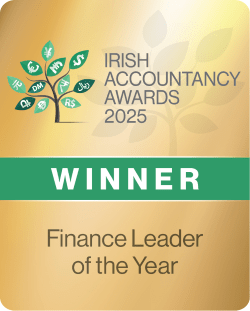As we approach December, small business owners and directors face one of the year’s most important financial decisions: how to efficiently extract money from your business. This isn’t just about deciding whether to give yourself a bonus. It’s about making strategic choices that benefit both you and your company’s long-term success.
Your year-end decisions about bonuses, pension contributions, and cash retention will have significant implications for your personal finances and business health. These choices impact everything from your immediate tax position to your company’s ability to grow and invest in the future.

Why Year-End Planning Matters
Proactive planning before your December year-end is crucial for optimizing both personal and business finances. Many directors leave these decisions until the last minute, potentially missing out on significant tax savings and cash flow optimization opportunities.
Understanding Your Tax Obligations
Before looking at your bonus options, it’s important to have a solid understanding of your tax obligations as an Irish business owner. This includes:
- Corporation Tax: A tax levied on the profits of companies
- Income Tax: A tax on personal income, including salaries, dividends, and rental income
- VAT (Value Added Tax): A consumption tax added to the price of most goods and services
- PAYE: A system for deducting income tax and PRSI (Pay-Related Social Insurance) from employees’ wages
- PRSI: A social insurance scheme that funds various social welfare benefits
Strategic year-end planning enables you to make informed decisions about profit distribution while maintaining healthy cash reserves for business growth. This planning becomes particularly crucial when balancing three key options:
- Taking a bonus for immediate personal benefit
- Making pension contributions for long-term wealth building
- Retaining cash in the business for future growth
Understanding Bonuses
Bonuses can provide valuable financial benefits for directors, but understanding the various factors and implications is crucial.
Benefits of Bonuses
A well-structured bonus can provide immediate value for directors. The most obvious benefit is quick access to funds for personal or family needs – whether that’s home improvements, education costs, or building your personal investment portfolio.
- Key Advantages:
- Immediate financial flexibility
- Recognition for your contribution
- Opportunity for profit sharing with key team members
- Alignment with business performance
- Strategic Factors to Consider:
- Personal financial goals and timing needs
- Market conditions and business outlook
- Investment opportunities (both personal and business)
- Balance between immediate needs and long-term planning
Tax Implications of Bonuses
Understanding the 2024 tax bands is crucial before making any decisions about bonuses. For single individuals, the first €42,000 is taxed at 20%, while married couples can earn up to €84,000 at this lower rate. Anything above these thresholds faces a significant jump to 52% (including USC and PRSI).
Let’s look at a practical example:
Imagine you’re married and your household already has an income of €75,000. You’re considering a €20,000 bonus. Here’s how it would be taxed:
- First €9,000 would be taxed at 20% (using up the remainder of your €84,000 threshold)
- The remaining €11,000 would be taxed at 52%
This means that rather than taking the full bonus in one go, you might want to consider splitting it across tax years or exploring alternative options like pension contributions.
Structuring Your Bonus
Company Size and Percentage Guidelines
The approach to bonuses usually varies based on your company’s size:
- Small Companies (under €1M turnover):
- Typical bonus range: 5-15% of annual profit
- Simple bonus structures work best
- Usually paid annually after year-end
- Performance metrics tied to growth targets
- Emphasis on cash flow stability
- Medium-sized Businesses (€1M-€5M turnover):
- Multiple bonus components possible
- Quarterly payment structures feasible
- Industry benchmarking recommended
- Balance of fixed and performance-based elements
- Greater scope for varied incentive structures
- Larger Organizations (€5M+ turnover):
- Complex bonus structures feasible
- Industry benchmarking essential
- Multiple performance metrics
- Mix of short and long-term incentives
- Sophisticated monitoring systems
Financial Assessment Checklist
Before finalizing your bonus percentage, analyze:
- Business Performance:
- Historical profit trends
- Future growth projections
- Debt obligations
- Investment requirements
- Cash Flow Patterns:
- Seasonal variations
- Working capital needs
- Investment plans
- Monthly revenue cycles
Year-End Bonus Planning
Annual bonuses remain the most traditional approach for directors. This method requires careful planning throughout the year to ensure both compliance and optimal timing.
- Key Benefits:
- Aligns with annual financial reporting
- Provides clear performance measurement periods
- Enables strategic profit distribution
- Matches natural business cycles
- Planning Timeline:
- Start accruing from the beginning of the financial year
- Review performance quarterly
- Adjust provisions based on business performance
- Plan final assessment before year-end
- Document decisions and rationale
- Implementation Steps:
- Establish clear performance criteria
- Set up proper accounting procedures
- Create documentation templates
- Schedule regular review points
- Plan payment timing carefully
Tax Planning and Compliance
Advanced Planning Strategies
- Personal Strategy:
- Impact on marginal tax rates
- Tax credit utilization
- USC implications
- PRSI considerations
- Timing Strategies:
- Payment before tax year-end
- Split payments across tax years
- Pension contribution options
- Benefit in kind implications
- Company Benefits:
- Ensuring qualification as business expense
- Optimal timing of deductions
- Proper Revenue documentation
- Performance linkage requirements
Compliance Requirements
- Company Perspective:
- Record the bonus correctly in accounts
- Time the tax deduction properly
- Manage cash flow for payment
- Keep supporting documentation
- Maintain clear audit trails
- Ensure proper board approvals
- Personal Tax Planning:
- Income tax implications
- USC and PRSI contributions
- Benefit in kind considerations
- Overall tax efficiency
- Personal tax return requirements
- Preliminary tax obligations
Alternative Remuneration Structures
Consider these tax-efficient alternatives to standard cash bonuses:
- Pension Contributions
- Tax-efficient for both company and director
- Long-term wealth building
- Protected retirement savings
- Flexible contribution levels
- Non-Cash Benefits
- Company car or vehicle allowance
- Health insurance
- Professional subscriptions
- Training and development
- Deferred Payment Arrangements
- Structured payment plans
- Performance-linked deferrals
- Long-term incentive plans
- Share option schemes
Understanding Pension Contributions
Understanding how pension contributions can provide tax-efficient savings and long-term wealth building is crucial for effective financial planning.
Tax Benefits
Pension contributions often provide a more tax-efficient way to extract value from your business. When properly structured, they offer significant advantages over direct bonus payments:
- Long-term Benefits:
- Full tax relief on contributions for the company
- Reduction in corporation tax liability
- Tax-free growth within the pension fund
- Strategic wealth building for retirement
- For example, a €20,000 pension contribution could result in:
- Corporation tax saving of €2,500
- No immediate income tax liability
- Tax-free growth on investments
- Protected wealth accumulation for retirement
Key Deadlines and 2025 Changes
Timing is crucial when it comes to pension contributions. For December year-end companies:
- Critical Deadlines:
- Contributions must be physically paid before year-end
- Documentation needs to be complete
- Investment decisions should be made
- Regular review of contribution levels
- Significant changes are coming in 2025:
- New limit of 100% of annual PAYE income
- Potential impact on contribution strategies
- Need for advance planning
- Opportunity to maximize benefits before changes
Strategic Planning
Your pension contribution strategy should align with both personal and business goals. Consider:
- Current age and retirement timeline
- Existing pension provisions
- Investment risk appetite
- Business growth plans
- Cash flow requirements
Balancing Cash Flow
Making bonus or pension decisions requires careful cash flow management. Think of your business’s cash flow like a household budget – you need to make sure you’re not compromising future stability for immediate benefits.
Essential Considerations:
- Maintaining Adequate Reserves:
- Keep 2-4 months of fixed operating costs available
- Account for seasonal variations
- Plan for upcoming investments
- Consider economic uncertainties
- Operational Requirements:
- Day-to-day working capital needs
- Supplier payment terms
- Customer payment patterns
- Seasonal fluctuations
Your cash flow analysis should include a thorough review of:
- Historical Patterns:
- Monthly revenue trends
- Fixed cost commitments
- Variable cost fluctuations
- Seasonal impacts
- Future Projections:
- Growth plans
- Investment needs
- Market conditions
- Economic factors
Choosing Between Bonuses And Pensions
When determining the optimal mix of bonuses and pension contributions, directors must carefully weigh a variety of factors to make the most strategic decision.
Decision-Making Framework
Your choice between bonus and pension contributions should be based on a comprehensive analysis of your situation:
- Tax Position Assessment:
- Current income level
- Tax band implications
- USC and PRSI impact
- Overall tax efficiency
- Cash Flow Considerations:
- Business stability
- Growth requirements
- Working capital needs
- Investment plans
- Personal Circumstances:
- Immediate financial needs
- Retirement planning
- Investment strategy
- Family considerations
Practical Decision Making
Consider these scenarios:
- Scenario 1: Lower Tax Band
If your total income falls within the 20% tax band:- Bonus payments might be more attractive
- Immediate access to funds
- Lower tax impact
- Greater flexibility
- Scenario 2: Higher Tax Band
If you’re in the 52% tax bracket:- Pension contributions often more efficient
- Long-term wealth building
- Tax-free growth
- Protected assets
Common Mistakes To Avoid
Many directors make costly mistakes when planning their year-end remuneration. Here are the key pitfalls to watch for:
- Timing Errors:
- Missing pension contribution deadlines
- Poor bonus payment timing
- Late documentation
- Rushed decision making
- Strategic Mistakes:
- Ignoring total tax position
- Depleting business cash reserves
- Short-term thinking
- Poor documentation
- Financial Planning Errors:
- Not considering future tax changes, like the new 100% of PAYE income limit on pension contributions coming in 2025
- Overlooking the impact of the 2025 PRSA contribution cap changes
- Ignoring business growth needs
- Poor cash flow management
- Inadequate record keeping
Next Steps
Now that you have a better understanding of the key considerations for bonus planning, it’s time to take action. Here are some steps to get you started:
- Assess your company’s financial position to determine the feasibility of implementing a bonus scheme.
- Consult with an accountant specialising in small business taxation and remuneration planning to navigate tax implications and ensure compliance.
- Set clear, measurable, and achievable performance criteria that align with your company’s strategic goals.
- Choose the most appropriate bonus structure based on your company’s circumstances and industry standards.
- Plan for tax efficiency by collaborating with your small business accountant to optimise benefits for both the company and directors.
- Document and implement your bonus plan, including obtaining board approvals and updating employment contracts.
- Monitor and review regularly to assess the effectiveness of your bonus scheme and make necessary adjustments
Understanding bonuses and implementing them correctly makes a significant difference to both you and your company. Our team of experienced accountants can help you create an efficient, compliant bonus structure that works for your business.
Contact us today for a free consultation about your director bonus planning. We’ll help you maximise benefits while ensuring full compliance with tax and legal requirements.
FAQs
How do I account for director bonus accrual?
Record expected bonus payments monthly in your accounts to ensure proper financial planning and tax treatment.
How is a director bonus taxed?
Bonuses are taxed as employment income through PAYE, with income tax, USC, and PRSI deducted at your marginal rate.
When should I pay the bonuses?
Most companies pay bonuses annually after finalising year-end accounts, though quarterly or project-based payments are also common.
What documentation do I need for a director bonus?
Keep board minutes, written resolutions, performance criteria, and payment records.
Can a company in loss pay director bonuses?
While possible, paying bonuses during loss-making periods requires careful consideration and clear justification.
What percentage should a director bonus be?
Typical director bonuses range from 5-20% of annual profits, depending on company size, industry standards, and business performance.











